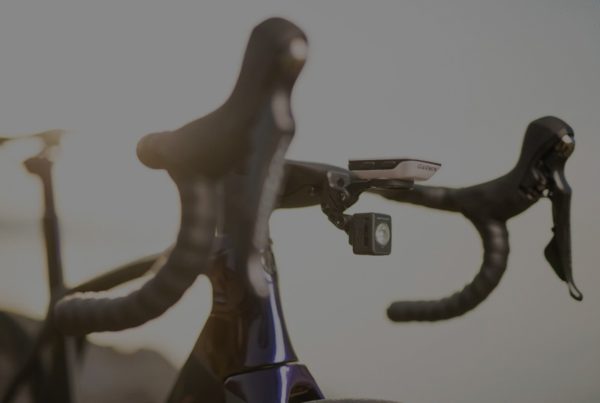Question: What are the consequences for a driver who is paying more attention to the dial of their stereo, their coffee, a passenger, or their cell phone than they are to the roadway upon which they are traveling in their motor vehicle, if they hit and kill or seriously injure a cyclist?
Answer: Not much. In most states, unless the driver was proven to be intoxicated or they were driving in a grossly negligent (criminal) way, they will receive a traffic ticket at most — which can usually be paid through the mail. No crimes charged, no court appearance, no significant fines, no driving suspension. Just drop a check in the mail and let the insurance company deal with the damages (that is, if they are insured).
Why: In order for a crime to be charged in the situation posed, the prosecutor would have to prove ‘beyond a reasonable doubt’ that the driver behaved in a criminally or grossly negligent way. You probably think that operating a huge machine in a distracted manner is grossly negligent. I do too. But under most states’ criminal statutes, to be shown as ‘grossly negligent’ would require an extreme act like driving 90mph through a school zone populated with children and hitting one of them. Short of egregious and shocking behavior, it is tough to get a conviction under the requirements of criminal driving statutes.
Solution: Vulnerable Road User laws (VRU laws). The term comes from Europe and it contemplates the fact that some road users are not surrounded in steel and safety glass, wearing seat belts, as motorists are. These ‘vulnerable users’ include cyclists, but also pedestrians, equestrians, skateboarders, and farm workers. Generally, VRU laws apply when a driver commits a driving infraction and a cyclist or other vulnerable road user is seriously injured or killed as a result. In other words, the driver faces a penalty more serious than a small fine, but less serious than criminal penalties.
Some examples of the types of penalties available in the various VRU laws are enhanced fines (higher than the standard traffic violation), driver’s license suspension, jail time, completion of a traffic safety course, and community service. In other words, the VRU laws fill in the middle ground between paying a few bucks and going away to prison for years.
About half the states and the District of Columbia have statutes on the books that protect vulnerable road users in some way (these include anti-harassment of cyclist laws), and five states have comprehensive laws that specifically mention and define vulnerable road users and lay out penalties for violators of their rights. Those states are Delaware, Hawaii, Oregon, Vermont, and Washington. The Wisconsin Bike Federation is working to get the Badger State to be the next to join this short list of states that specify vulnerable road users and lay out the specific legal process for prosecution and punishment of those who violate VRU laws.
Who is against this bill: Some elected officials and special interest groups feel that the VRU bills are ‘special laws’ for cyclists. Others claim we have too many laws already. This is a mentality that allows the status quo of dangerous and deadly driving without consequences to continue. This perspective might make sense if we, as a driving society, had enough compassion for our fellow road users. But the sad truth is that distracted and dangerous driving continues, and these VRU laws are an attempt to curb and correct that poor behavior by establishing more severe consequences for people whose driving errors needlessly injure or kill vulnerable road users.
Lastly, there seems to be a prevailing mentality that the roadways are simply too dangerous for anything but motor traffic, that if you choose to use the roadways without being surrounded in a cocoon of steel you have assumed the risk. However, we know from studies that the presence of humans in our traffic system who are vulnerable to motor vehicles has the effect of making roads safer for everyone, including people in motor vehicles. For this reason, any laws that give enhanced protection to the most vulnerable of road users are a step in the right direction.
This article, Legally Speaking with Bob Mionske: Vulnerable user laws, was originally published on VeloNews on November 9, 2015.
Now read the fine print:
Bob Mionske is a former competitive cyclist who represented the U.S. at the 1988 Olympic Games (where he finished fourth in the road race), the 1992 Olympics, as well as winning the 1990 national championship road race.
After retiring from racing in 1993, he coached the Saturn Professional Cycling team for one year before heading off to law school. Mionske’s practice is now split between personal-injury work, representing professional athletes as an agent and other legal issues facing endurance athletes (traffic violations, contract, criminal charges, intellectual property, etc.).
Mionske is also the author of “Bicycling and the Law,” designed to be the primary resource for cyclists to consult when faced with a legal question. It provides readers with the knowledge to avoid many legal problems in the first place, and informs them of their rights, their responsibilities, and what steps they can take if they do encounter a legal problem. If you have a cycling-related legal question please send it to Bob, and he will answer as many of these questions privately as he can. He will also select a few questions to answer in this column. General bicycle-accident advice can be found at bicyclelaw.com.
Important notice:
The information provided in the “Legally Speaking” column is not legal advice. The information provided on this public website is provided solely for the general interest of the visitors to this website. The information contained in the column applies to general principles of American jurisprudence and may not reflect current legal developments or statutory changes in the various jurisdictions and therefore should not be relied upon or interpreted as legal advice. Understand that reading the information contained in this column does not mean you have established an attorney-client relationship with attorney Bob Mionske. Readers of this column should not act upon any information contained in the website without first seeking the advice of legal counsel.
© Bob Mionske 2015. All Rights Reserved.




